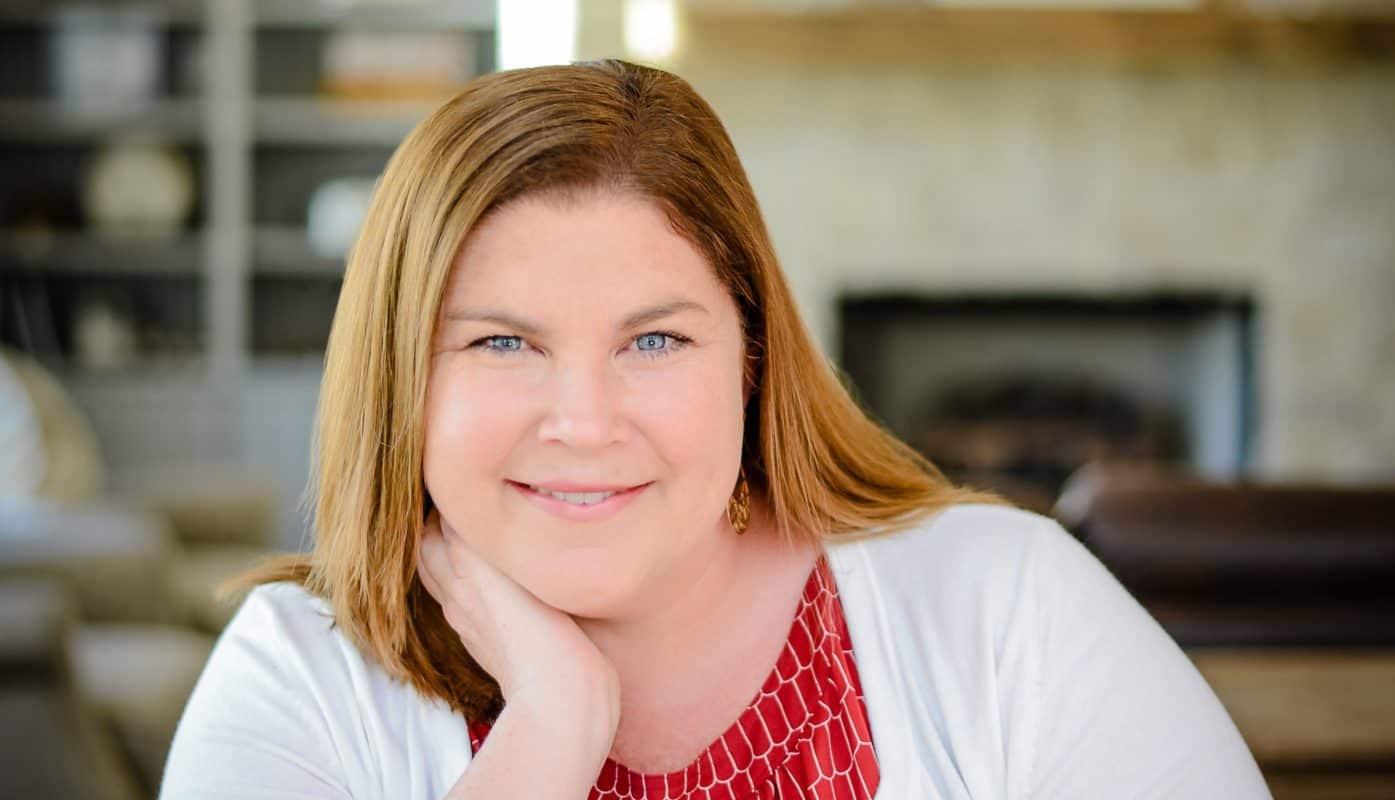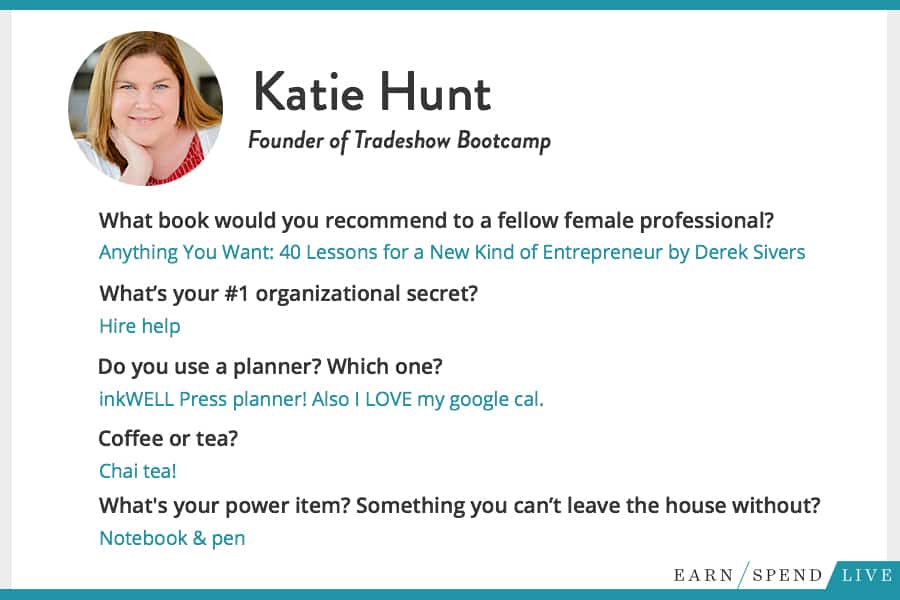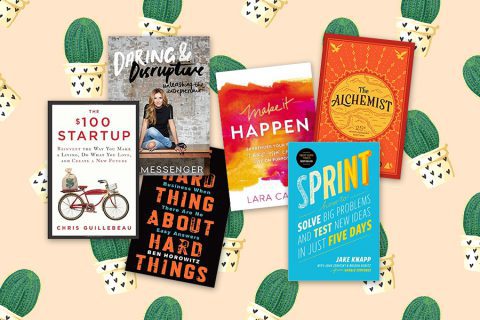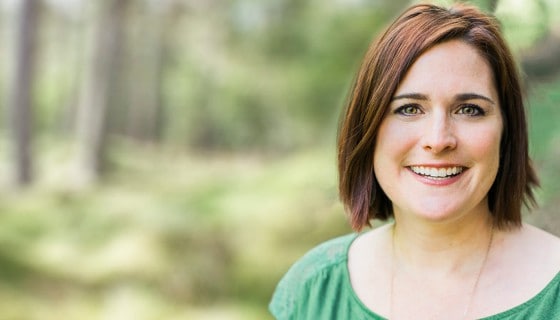Real Talk With Katie Hunt, Founder of Tradeshow Bootcamp

To say Katie Hunt, founder of Tradeshow Bootcamp, is busy is an understatement. With a family, a business, and a podcast, her plate is full—but she’s learned through trial and error how to juggle her responsibilities and put out great work. We talked with Katie about her why, her struggles, and how she’s mastered the art of running a business.
Name: Katie Hunt
Location: Los Angeles, CA
Title: Founder of Tradeshow Bootcamp
What it is: Help product-based businesses how to get their products on the shelves of stores big and small.
Educational Background: B.A. in sociology from U.C. Santa Barbara; dual M.B.A. in finance and marketing from Loyola Marymount University
What inspired you to start Tradeshow Bootcamp?
I needed help growing my stationery business and I saw that my colleagues in the industry also needed help. My peers were trained artists who excelled in creating their work but struggled with running their businesses. I had a background in business but was a self-taught artist. I thought if we could get everyone together and share our knowledge and resources we could leverage each other’s experiences to grow our own businesses as well as strengthen our industry.
Tradeshow Bootcamp launched in the spring of 2011 with four teleconference calls. We’ve since expanded into live events, online courses, one-on-one coaching, a podcast, and we work with companies in all phases of business. We’ve expanded as our community’s needs have changed!
I’m really proud of the community we’ve built and the culture of collaboration that we’ve modeled.
What does a typical day look like for you?
Every day looks different, but I usually reserve my time before lunch for the tactical work that I personally need to get done. I try to eliminate all distractions so that I can focus and be productive. After lunch is when I like to schedule my meetings, interviews, or client calls. My team works virtually, so we use video chat to connect and we use Slack for online chatting.
I’m a big fan of block scheduling, too. For example, for my podcast, Proof to Product, I reserve a few days a month to conduct my interviews. I have one day set aside each month to review our financials and talk with my financial planner. I find that when I block these tasks, I get through them more quickly and the end results are stronger and more consistent.
If you could have given yourself a piece of knowledge or advice when you started what would that be?
Know your why and try not to listen to the noise.
With the expansion of social media and online business courses, there are a lot of people out there telling us how to run our businesses, about shiny new tech or systems we need to put into play, or using FOMO as a way to sell people. It’s hard not to listen to all that noise. BUT, as entrepreneurs, it’s so important that we remember why we got into this business to begin with. Trusting our gut and keeping what motivates us at the forefront of our decision-making is going to lead to the best results.
Sure, it’s important to know what our competition is doing and what new opportunities are out there. But we can’t let that distract us from doing the work we set out to do. Focusing on your why in business, keeping our head down, and tuning out the noise will help us all be more productive and successful.
Would you do anything differently?
I would have hired help earlier. I didn’t think I could afford it, wasn’t sure what to delegate, and I didn’t think people would be interested in part-time work. Once I got over those mindset issues, I realized that there are many people looking for flexible, part-time work and that I could start small and build up. I have since hired several part-time independent contractors–people who are experts in what they do and who bring strength to my team in areas where I was weak. It changed my business for the better and alleviated my stress.
How do you define success?
I love this question because everyone’s definition of success varies and oftentimes changes with different seasons in life. For me, success means being able to do work I love with clients who recognize and appreciate my skills and expertise, while also having time and flexibility to be an active, present mom and wife to my family.
How do you balance tending to all of your different ventures and your family?
I have a lot of help. My husband and I are quite the team when it comes to our family. We’re both very active in tending to the kids’ needs and activities and he’s my biggest cheerleader when it comes to what I’m doing in my business. We also have support from our extended family and local friends.
On the business side, I have a small-but-mighty team that helps to keep the trains on track. I’m grateful for each of these women and the expertise they bring to the table. I do my best to create an atmosphere where they know their ideas are welcome and their contributions are valued.
I’ve always had a difficult time asking for help. However, I realized quickly that I can’t do all of these things on my own. And, in the early days when I tried to juggle a day job, family, building a business on my own, balls dropped and things fell through the cracks. I’m trying to be more open to asking for and accepting help.
What’s been the hardest part of starting this business?
When I started Tradeshow Bootcamp in 2011, there were not a lot of people teaching courses to freelancers and solo entrepreneurs like there are now. At the beginning, we were faced with a proof of concept phase — not just for the content we were teaching but also the format. People weren’t used to taking courses online or by phone and live events for independent entrepreneurs and freelancers weren’t as common as they are today. I had to really educate our audience as to what we were doing, what they would learn and the benefits of joining our community/taking our courses.
These are things we still communicate — value, benefits and how they will apply what they learn to their business — but it feels easier now that we have brand recognition and a solid alumni community. People understand who we are and what we’re doing more clearly now than they did in 2011.
What has been the most rewarding part of starting your own business?
I love, love, love hearing stories from our alumni about how they’ve made shifts, tough decisions and/or scaled their businesses based on things they learned at Tradeshow Bootcamp. It’s really rewarding to hear how people are using the knowledge they gained from us to not only help their businesses, but to ensure that they are doing work that they are excited about. In this same vein, seeing our alumni community grow, seeing the impact we’ve made on the stationery and gift industries and knowing that me and the other TSBC speakers played a small part in that — it’s all very rewarding to me personally.
How has social media helped shape your brand?
Social media has played a huge part in growing and shaping my brand. I started on Twitter in 2008 and that’s where I met most of our Tradeshow Bootcamp speakers! It was a great way for us to connect with other companies in our industry and share strategies. When Instagram came on the scene, that really changed things for my business and community. It gave me a platform to share work from our alumni, teach lessons and share information about our programs with visual aids.
I work with creative entrepreneurs who are artists and product makers — Instagram was a powerful tool for visually showcasing their work. Social media is our second highest referral source for new business and it’s allowed me to really engage with our audience and TSBC community members in exciting ways.
How do you make sure you stand out on social media?
My social media strategy is two-fold — provide valuable content for product based businesses and highlight what our TSBC alumni are doing. For the Tradeshow Bootcamp Instagram, I want to make sure we have lovely photos, but I also use it as a micro-blogging platform where I can teach a lesson, share wins from our alums or provide inspiration. I want people to see our photos, read our captions or watch our stories and feel like they are part of our community.
I still personally handle all of our social media and email marketing because I want the voice of our brand to be mine. I want our audience to feel like they are talking directly with me.
What are your hobbies? What do you do when you’re not working?
When I’m not working, I’m usually chasing kids or at their soccer games. I love to read, hang out at the beach, have picnic dinners with my family, travel, and connect with friends.
What do you do when you start to feel overwhelmed and stressed out?
If you had asked me this 6-8 years ago I would have given you a different answer. I would have told you then that I put my head down, push through whatever is causing the stress to get the job done — finish the project, make a decision, etc.
But now, I push pause. I go for a walk, I turn off distractions and try not to make any big decisions when I’m feeling overwhelmed and stressed. I’ve realized that I need quiet time to recenter myself and collect my thoughts, then formulate a plan to tackle whatever is causing stress or overwhelm.
What’s next for you?
2017 was a big growth year — in addition to our Paper Camp conferences and e-courses, we launched the Proof to Product podcast, I hosted Paper Camp+, an advance conference for our alumni, and my team expanded. I want 2018 to be a year of refinement both internally for my team and externally with how we’re showing up for our clients.
We’re building out a new website that will help our audience get the help, information and resources they need more quickly. Internally, I want to streamline systems so we’re working more efficiently, build out better processes so we’re using the content we develop more effectively. We’ll continue to offer our in-person conferences, online courses and coaching programs. And, I’ll continue hosting Proof to Product, my weekly podcast, for product-based businesses. I’m excited for what’s to come.
What advice would you give to someone else looking to launch their business?
There’s no such thing as an overnight success. The companies that look like overnight successes have likely spent years quietly working away behind the scenes. Focus on creating a great product or service that fills a need or solves a problem, then work hard and be patient.











Show Comments +